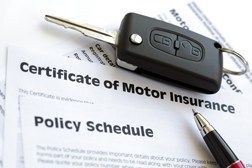 Depending on your state, you may face additional requirements from the Department of Motor Vehicles (DMV) or its equivalent agency if you are arrested or convicted on a drunk driving charge. In most states, once you are arrested for driving while intoxicated (DWI) or driving under the influence (DUI) of alcohol or drugs, your driver’s license is immediately suspended pending your court hearing. This suspension is generally considered an administrative action until your legal case is settled and there is a court ruling to follow. In other words, until the legal matter is sorted out, you should not be driving.
Depending on your state, you may face additional requirements from the Department of Motor Vehicles (DMV) or its equivalent agency if you are arrested or convicted on a drunk driving charge. In most states, once you are arrested for driving while intoxicated (DWI) or driving under the influence (DUI) of alcohol or drugs, your driver’s license is immediately suspended pending your court hearing. This suspension is generally considered an administrative action until your legal case is settled and there is a court ruling to follow. In other words, until the legal matter is sorted out, you should not be driving.
In states like California, Florida, Michigan or Virginia, it is possible to petition the DMV for an administrative hearing in order to continue to drive legally. Depending on the aggravating or mitigating factors surrounding your DUI/DWI arrest, any prior drunk driving convictions or other traffic violations that may have occurred, the DMV may grant you a restricted driver’s license, occupational driver’s license or “Cinderella license.” If that is the case, you will also be required to install an ignition interlock device on your vehicle, or any vehicles you drive.
With a pending court date for a drunk driving charge, your DMV could easily determine that you are too much of a risk on the road, even with an ignition interlock installed on your car, and deny your petition or application to keep driving. The points that are attached to different traffic violations like speeding or reckless driving are a “cut and dry” method of determining your ability to drive safely. Because the DMV uses a system of points for traffic violations, it is possible that you could be denied a restricted or occupational driver’s license, even if you have an ignition interlock device installed on your vehicle.
While a court hearing will determine your overall legal punishment for driving while intoxicated, it is the DMV that will suspend your driver’s license even before you get into a courtroom, or even after the fact. The DMV may also be responsible for monitoring your ignition interlock installation and more. Knowing the difference between the role of the court and that of the DMV if you are arrested and/or convicted of a drunk driving charge can make the entire process easier, giving you the ability to get back on the road with the promise of driving sober once the administrative and legal dust settles.

 Questions to Ask Your Ignition Interlock Device Service Provider in Michigan
Questions to Ask Your Ignition Interlock Device Service Provider in Michigan